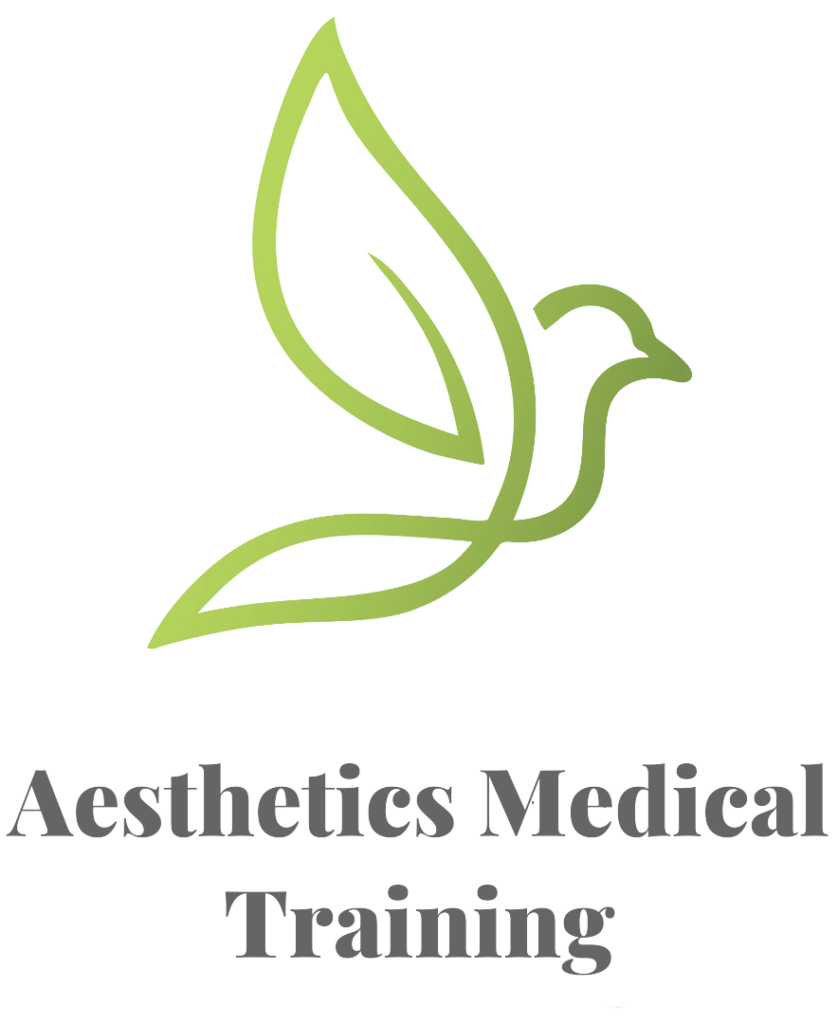The cosmetic laser industry, especially laser hair removal, has witnessed a significant boom in recent years. With advancing laser technology, the demand for skilled laser hair removal technicians has surged, making it a promising career path.
Proper training and certification are crucial in this field, not only for legal compliance but also for ensuring the highest standard of client care and safety. In this article, we will explore the journey to becoming a professional in this vibrant field, focusing on:
- The educational pathway and importance of comprehensive training.
- The process of obtaining national certification and licenses.
- Insights into the job market and potential earnings.
- How Aesthetics Medical Training stands out in providing quality education in medical aesthetics.
Introduction to the Role of a Laser Hair Removal Technician
A laser hair removal technician is a skilled professional in the cosmetic laser industry, specializing in using concentrated light beams to target and remove unwanted hair. This role requires a deep understanding of laser technology, skin anatomy, and hair growth patterns. Technicians must be adept at handling a variety of laser equipment and tailoring treatments to individual client needs, considering different skin types and hair follicles.
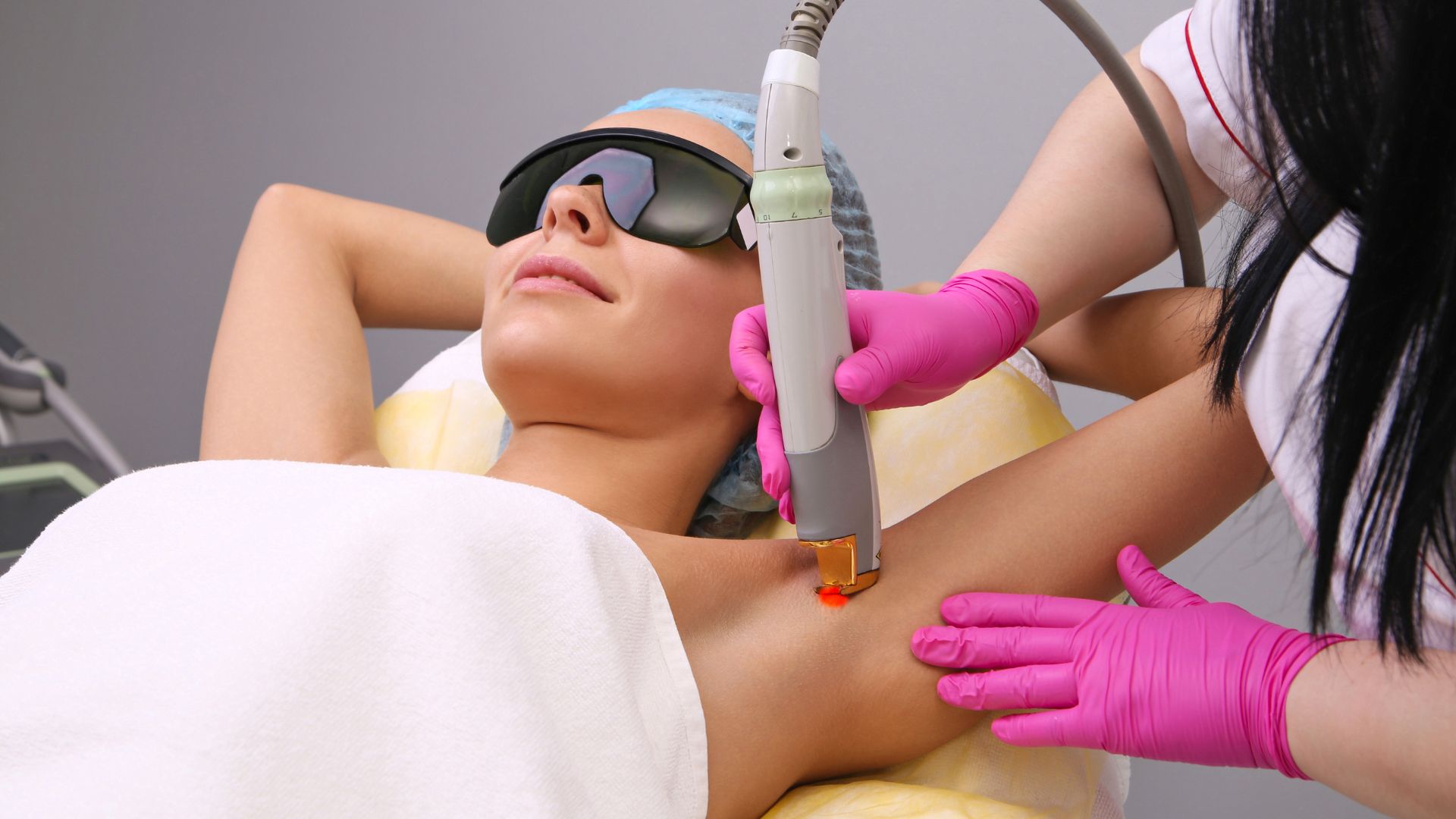
Essential Skills for a Successful Technician
- Client Consultation and Assessment: Technicians must effectively assess client skin types and hair characteristics to determine suitable laser treatments.
- Technical Proficiency in Laser Equipment: Proficiency in using different types of lasers and understanding their specific applications, such as skin resurfacing or skin tightening.
- Knowledge of Skin Care: A thorough knowledge of skin anatomy and the science behind laser technology is essential for safe and effective treatments.
- Client Safety and Care: Ensuring client safety during laser treatments and providing post-treatment care advice.
- Adaptability and Problem-Solving: Being able to adapt techniques for various skin types and addressing any issues that arise during treatment.
- Professionalism and Ethical Practice: Maintaining high standards of professionalism, including adhering to ethical practices and regulatory agency standards.
The journey to becoming a laser hair removal technician begins with comprehensive education and training. The next section will delve into the necessary educational background, the importance of hands-on training, and the process of obtaining certifications and licenses.
Education and Training – Paving the Way for Expertise in Laser Hair Removal
As we transition from understanding the crucial skills needed for a laser hair removal technician, it becomes evident that a solid educational foundation is key. The educational journey to become a laser hair removal technician is comprehensive, encompassing a variety of essential topics and practical skills crucial for success in this field.
The Educational Pathway
The path begins with a structured curriculum that delves into the intricacies of laser technology and skin biology. Students learn the fundamental principles of lasers, including their interaction with skin and hair follicles. This knowledge is vital, as it forms the basis for all laser hair removal treatments.
Courses in skin biology and laser safety are integral, ensuring that technicians are well-versed in identifying different skin types and understanding the safe operation of laser equipment. The National Laser Institute, for instance, offers extensive courses covering these crucial areas, emphasizing the importance of a comprehensive understanding of both theory and practice.
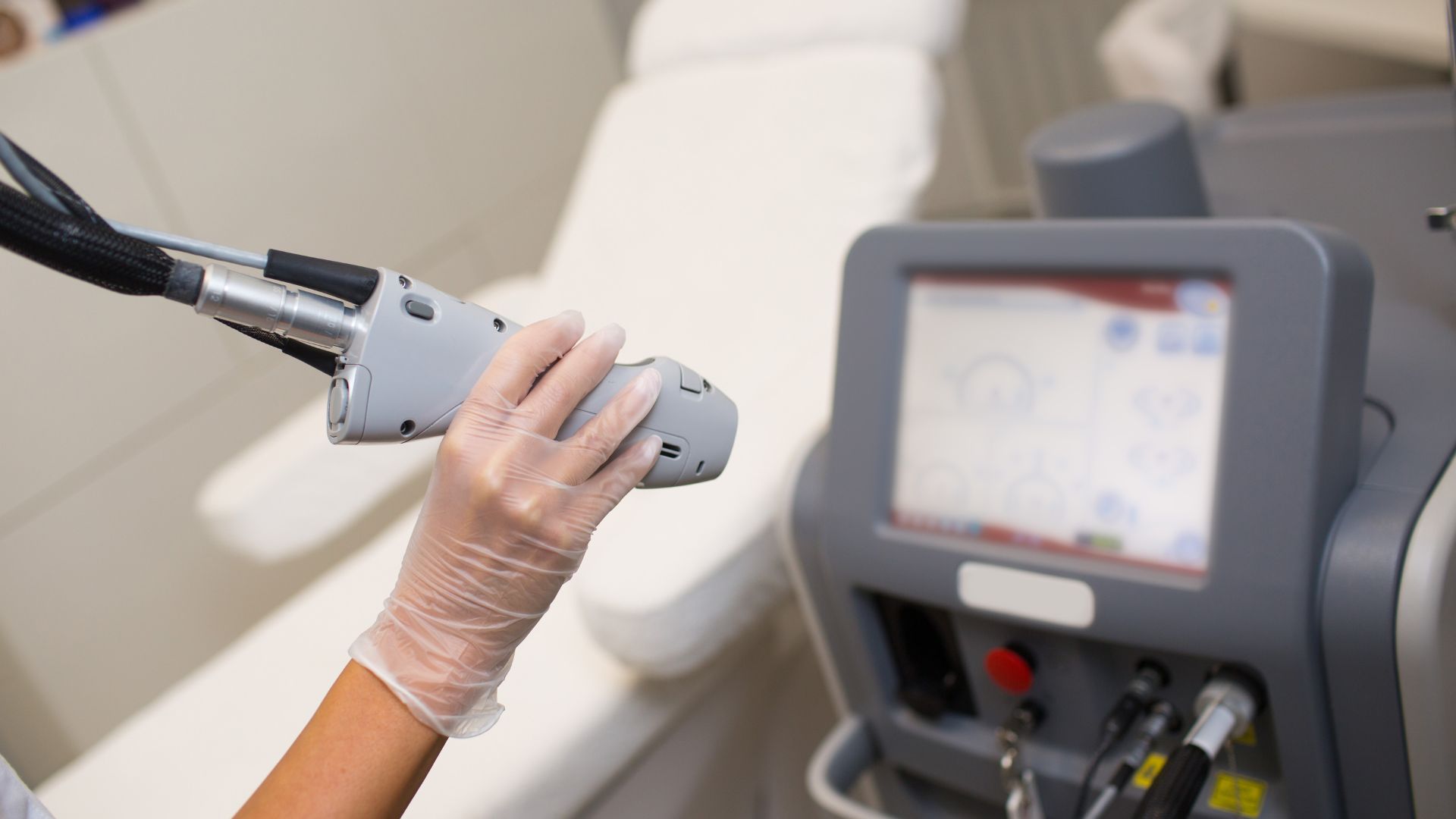
Hands-On Experience and Certification
Practical training is a significant component of the education process. Students typically undergo hours of hands-on training, working with a variety of laser types and practicing on diverse skin types. This practical experience is critical for developing the finesse and confidence needed to perform effective and safe laser hair removal treatments.
Upon successful completion of the training program, students are prepared to undertake the certification exam, a crucial step for becoming a licensed laser hair removal technician.
With a robust educational foundation, technicians are ready to progress to the next crucial stages – obtaining national certification and state licenses, which we will explore in the following section.
Certification – A Key Step in a Laser Hair Removal Technician’s Career
Following the comprehensive education and training detailed earlier, the next pivotal step for aspiring laser hair removal technicians is obtaining national certification. This certification not only adds credibility but also significantly enhances career prospects in the field of cosmetic lasers.
Examples of Key National Certifications
Several certifications stand out in the realm of laser hair removal, each catering to different aspects of laser technology and client care:
- Certified Laser Hair Removal Professional (CLHRP): This certification is geared towards those specializing in laser hair removal. It covers essential aspects of laser safety, skin types, and the science behind effective and safe hair removal using lasers. It’s a widely recognized credential that showcases a technician’s expertise in laser hair removal.
- National Council on Laser Certification (NCLC) Laser Certification: This certification is a comprehensive acknowledgment of a technician’s ability to safely and effectively operate a variety of cosmetic lasers, including those used for hair removal, skin resurfacing, and skin tightening.
- Certified Clinical Electrologist (CCE) and Certified Medical Electrologist (CME): While these certifications are more broadly focused on hair removal methods, including laser and electrolysis, they are valuable for technicians looking to offer a range of hair removal services.
- Certified Pulse Light Hair Removal Professional: This certification specifically focuses on the use of intense pulsed light (IPL) technology for hair removal, which is a popular alternative to traditional laser techniques.
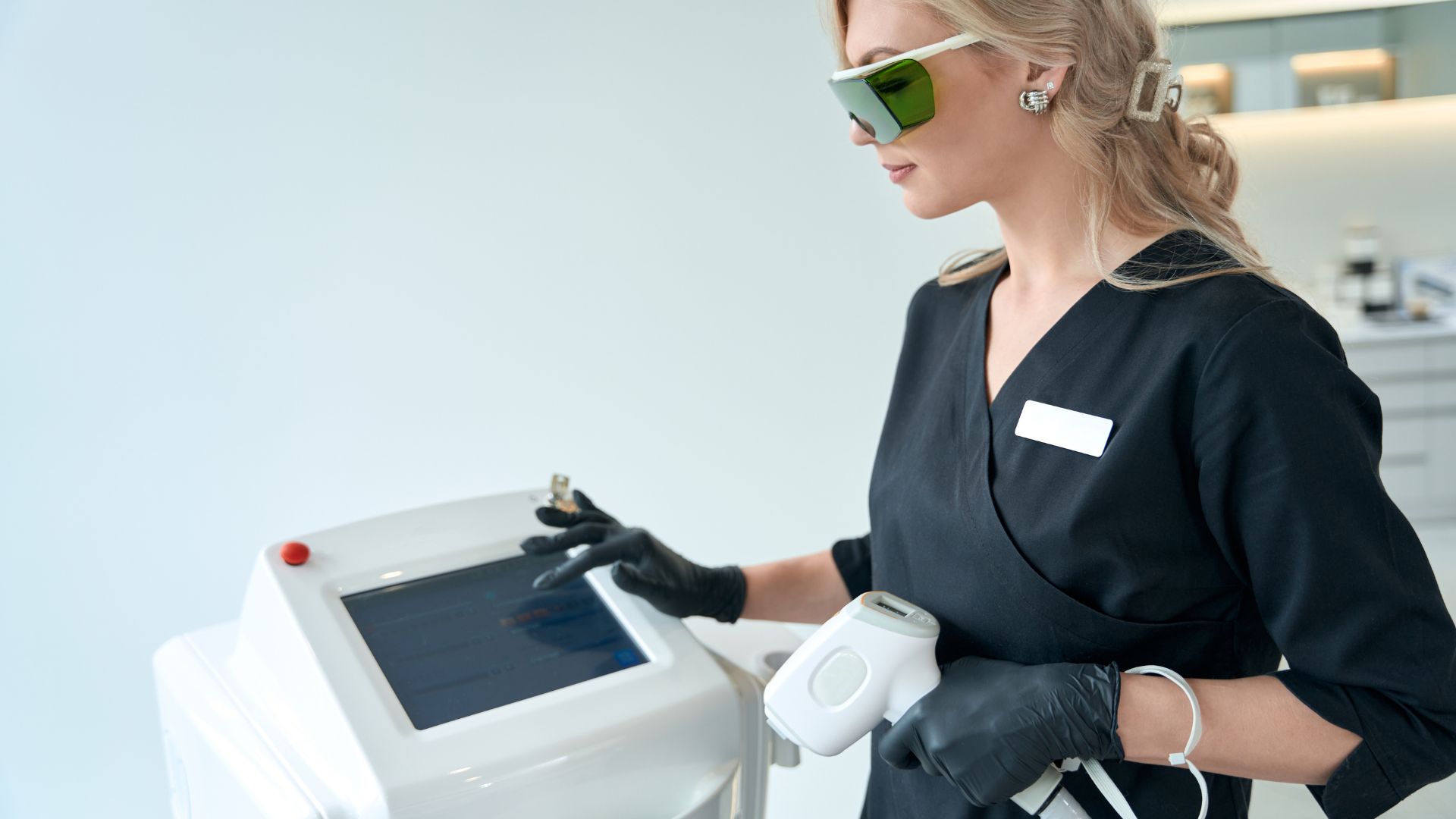
Each of these certifications requires successful completion of relevant coursework, clinical training, and passing a certification exam. This rigorous process ensures that laser hair removal technicians are well-equipped to handle various aspects of laser treatments, from client assessment and consultation to the actual laser procedure.
With national certification in hand, laser hair removal technicians are well-prepared to meet state-specific licensing requirements. In the following section, we’ll delve into the various state licenses, exploring how they vary and what they entail for a practicing laser hair removal technician.
Average Salary and Career Prospects in Laser Hair Removal
After delving into the intricacies of certification and licensing, an equally important aspect for aspiring laser hair removal technicians to consider is the financial and professional outlook in this field. Understanding the average salary range and the factors that influence it, along with the potential for career growth, is crucial for those aiming to establish a successful career in laser hair removal.
Understanding the Average Salary Range
The average salary for laser hair removal technicians can vary widely, influenced by several key factors. According to industry data, the salary range typically falls within a spectrum that reflects differences in location, experience, and the type of employer.
- Location: Geographic location plays a significant role in salary variations. Technicians in metropolitan areas or regions with a higher cost of living may command higher wages compared to those in rural areas.
- Experience: As with many professions, experience can significantly impact earnings. Seasoned technicians with a robust clientele and advanced skills often earn more than those just entering the field.
- Type of Employer: Employment settings also affect salary. For instance, laser hair removal techs working in high-end medical clinics or cosmetic laser centers may have different earning potentials compared to those in smaller, local skin care clinics.
The average salary for a laser hair removal technician in the United States is approximately $19.00 per hour in 2024. The salary range typically spans from $14 to $25 per hour, with bonuses and commissions potentially adding to the total pay.
In Nevada, the average annual salary for a laser hair removal technician is about $46,000 as of late 2023. The salary range in Nevada typically falls between $41,544 and $52,811, depending on various factors such as location, years of experience, and additional skills.

The career field for laser hair removal technicians is dynamic and evolving. With the cosmetic laser industry continually growing, the demand for skilled technicians is likely to increase, leading to more job opportunities.
In the next section, we will explore how our premier online school contributes to educational excellence in the field of cosmetic lasers and medical aesthetics, offering comprehensive virtual classes and hands-on training programs that prepare healthcare practitioners for a thriving career in aesthetic laser treatments.
Aesthetics Medical Training’s Unique Offerings in Medical Aesthetics Education
As we wrap up our exploration into becoming a laser hair removal technician, it’s crucial to highlight the role of our premier online school, dedicated to educational excellence in the field of medical aesthetics. Our school is not just a learning platform; it’s a gateway to a successful career in the rapidly growing cosmetic laser industry.
Tailored Virtual Classes
Our virtual classes provide comprehensive coverage of essential topics in laser hair removal:
- Focused on Laser Technology: Detailed understanding of various lasers and their applications.
- Skin Science: In-depth study of skin types and hair growth, crucial for personalized treatments.
- Safety and Regulations: Emphasis on laser safety and adherence to regulatory standards.
- Client Interaction: Training in effective client consultations and assessments.
Hands-On Training
Our school stands out with its practical, hands-on training:
- Real Equipment Experience: Hands-on practice with the latest laser equipment under expert guidance.
- Clinical Exposure: Direct experience in clinical environments, preparing students for real-world scenarios.
- Diverse Clientele Practice: Training with varied skin types and conditions, enhancing practical skills.
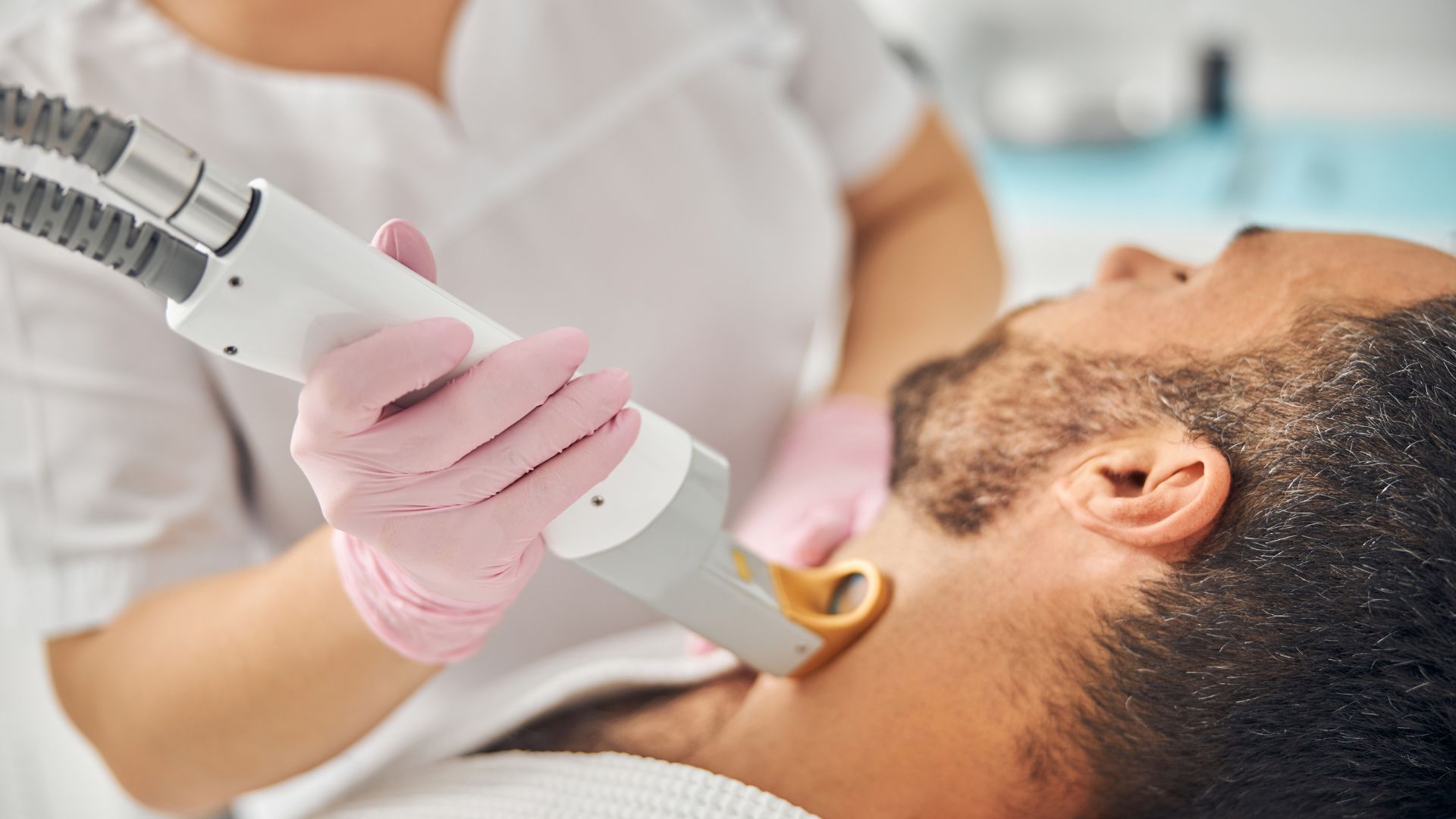
Career and Certification Readiness
Graduates are equipped for diverse roles in the aesthetic field, from licensed technicians to senior positions. Our curriculum is designed to prepare students for national certifications and state licenses, in line with standards from top institutes like the National Laser Institute.
Aesthetics Medical Training in Reno offers an exceptional educational journey in medical aesthetics, blending virtual learning with practical training. We’re committed to fostering career success in the dynamic field of cosmetic lasers, providing students with the knowledge and skills for a thriving career.
